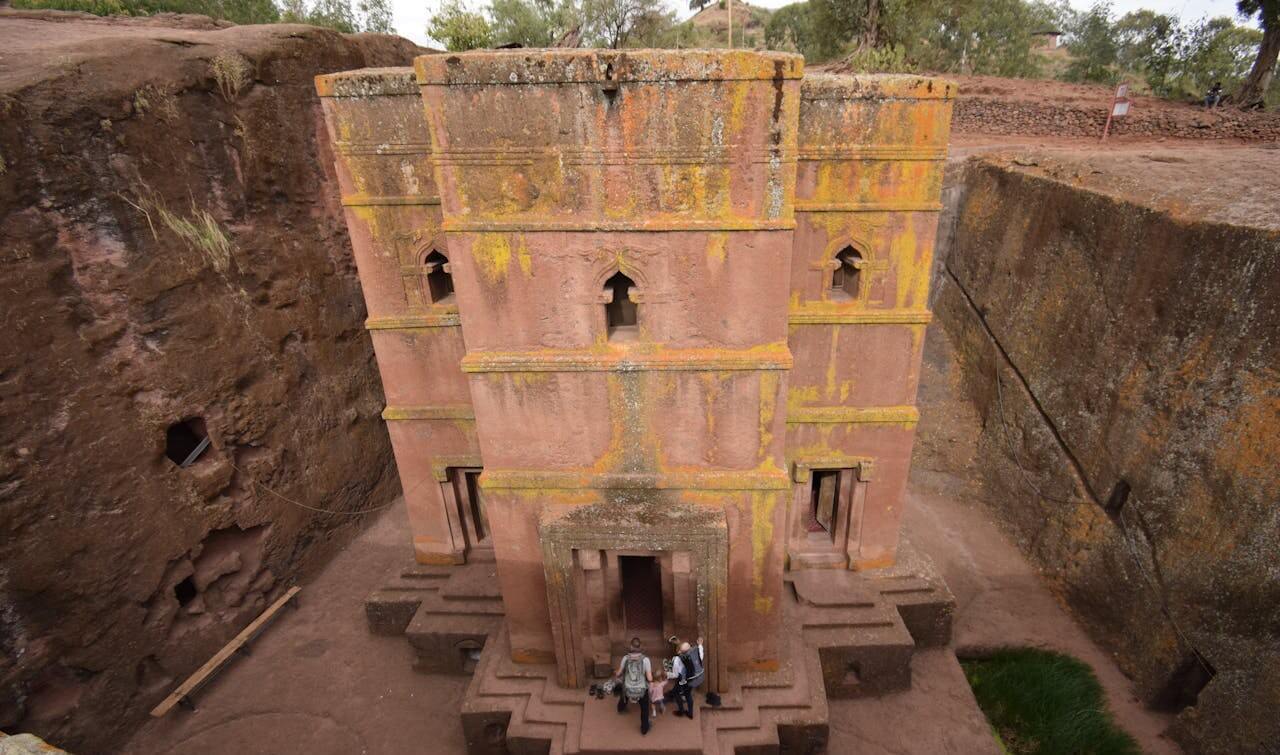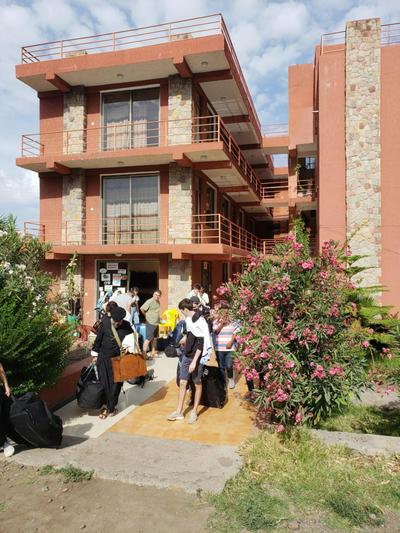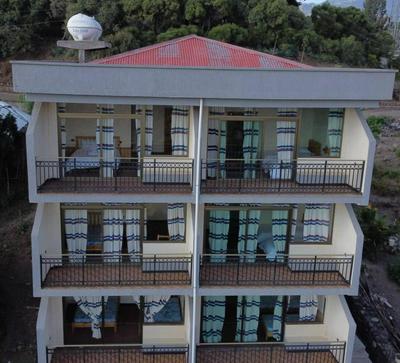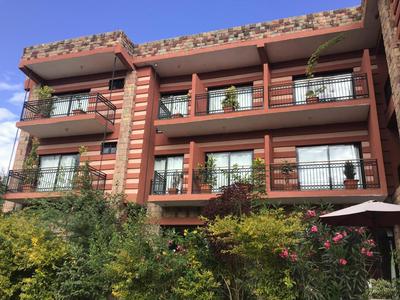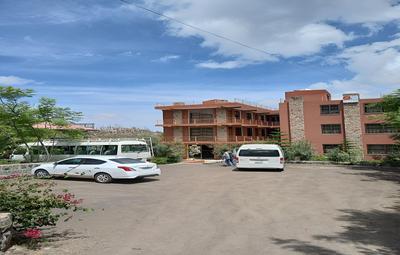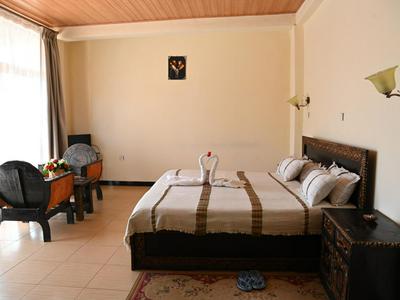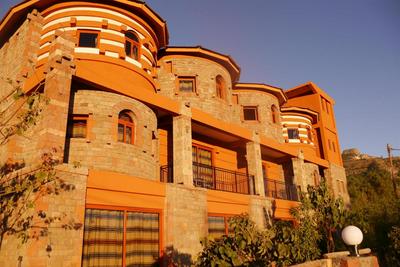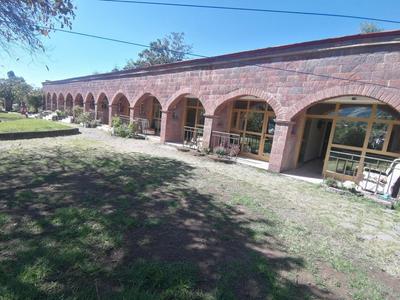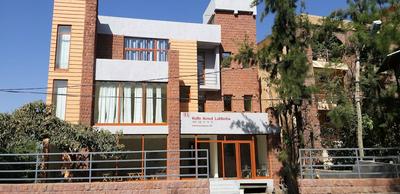When to visit Lalibela?
Lalibela, renowned for its stunning rock-hewn churches, enjoys a highland climate characterized by two distinct seasons: the dry season and the rainy season. The dry season, which lasts from October to May, is considered the best time to visit the city. During these months, the weather is pleasant, with daytime temperatures ranging from 18°C to 25°C (64°F to 77°F) and cool nights. This season is perfect for exploring the magnificent churches and participating in local cultural festivities.
In contrast, the rainy season stretches from June to September, with July and August receiving the heaviest rainfall. While the scenery is lush and green during this time, visitors might face challenges with outdoor activities due to wet roads and occasional flooding. However, fewer tourists flock to the area, making it a quiet time to appreciate the sights if you don’t mind some rain.
Summer is particularly lively with various religious festivals, while winter is cooler and more serene. Spring and autumn offer a mix of scenic beauty and comfortable weather, making each season unique in its own way. Travelers should check local events to align their visit with significant cultural occurrences, which can add depth to their experience.
How to get to Lalibela?
Lalibela, located in the northern part of Ethiopia, is accessible through several modes of transportation. The most common way to reach Lalibela is by air, with the Lalibela Airport (LLI) serving domestic flights from Addis Ababa, the capital. Flying takes about an hour, and several airlines operate daily flights connecting these two cities.
For those looking to travel overland, buses from Addis Ababa to Lalibela are a popular option. The journey typically takes around 10 to 12 hours, depending on road conditions, and offers travelers glimpses of Ethiopia’s stunning landscapes. There are also private car hire options available for a more flexible schedule.
While train travel isn't directly available to Lalibela, travelers can take a train to nearby cities and continue their journey by bus or car. Lastly, if you're driving, the road from Addis Ababa to Lalibela is relatively straightforward, with signposts to guide you along the way. Regardless of how you choose to arrive, the journey offers a unique view into the country’s rich culture and history.
Tourist activities in Lalibela
Lalibela boasts an array of activities that cater to diverse interests. At the heart of the city are the renowned rock-hewn churches, a UNESCO World Heritage Site that includes St. George's Church, famous for its impeccable architectural beauty. Visiting these churches allows travelers to appreciate not just their historical significance but also the spiritual atmosphere that surrounds them.
For outdoor enthusiasts, nearby hiking trails lead to scenic viewpoints offering stunning panoramas of the surrounding mountains and valleys. Additionally, the local markets are bustling with life, providing opportunities to explore Ethiopian crafts, spices, and coffee culture. Don’t miss tasting traditional Ethiopian dishes in local restaurants, where communal dining featuring injera and various stews is a highlight.
Nightlife in Lalibela is modest compared to larger cities, but local bars and eateries often feature traditional live music, especially during weekends. Whether day or night, Lalibela’s unique blend of culture and history provides countless experiences that resonate deeply with every visitor.
Events and festivals
Lalibela's vibrant culture is celebrated through various events and festivals throughout the year. One of the most notable is the Ethiopian Christmas (Genna), celebrated on January 7th, where locals participate in midnight mass at the rock-hewn churches. The spiritual significance and communal gatherings make this experience unforgettable.
Another significant event is the Ethiopian Orthodox New Year (Enkutatash), celebrated on September 11th. This festivity marks the end of the rainy season and the beginning of spring and is filled with traditional music, dancing, and colorful attire.
During Timkat (Epiphany), observed in January, the city comes alive with processions and reenactments, where the tabot (replica of the Ark of the Covenant) is paraded through the streets. Other cultural events like the Lalibela Cultural Festival showcase local music, dance, and art, engaging both visitors and locals alike in preserving and celebrating the rich traditions of Ethiopia.
Family and kids activities
Lalibela is a family-friendly destination with a variety of activities for kids. The rock-hewn churches serve not only as historical landmarks but also as educational sites where children can learn about history and architecture through engaging storytelling by local guides.
For outdoor recreation, nearby parks offer open spaces for picnicking and playing. Families can also embark on hiking excursions to explore the beautiful landscapes surrounding Lalibela. Local restaurants often welcome children with family-friendly menus featuring traditional Ethiopian dishes that are both nutritious and delicious.
For younger visitors, participating in coffee ceremonies can be a fun and interactive way to learn about Ethiopian culture while enjoying the rich flavors of local coffee. Museums in the area provide another educational opportunity, where kids can immerse themselves in the history and culture of Ethiopia through fun exhibits. Overall, Lalibela gives families various options to create memorable experiences together.
What to see in Lalibela?
Lalibela offers a unique collection of sights that captivate visitors. The most famous attraction is undoubtedly the rock-hewn churches, carved from solid rock in the 12th century. Notable churches include:
- Church of St. George (Bet Giyorgis) - Iconic for its cross-shaped architecture, this church is a masterpiece of Ethiopian design.
- Church of St. Mary - Famous for housing holy relics and significant to locals for its history.
- Church of Elijah - Known for its stunning murals and peaceful ambiance, ideal for reflection.
- Church of Abba Libanos - Located on an elevated position, providing a panoramic view of the surrounding area.
In addition to the churches, visitors can explore Lalibela's vibrant market, where local artisans sell handmade crafts and spices. The surrounding nature offers scenic hiking trails, with some leading to ancient monasteries and breathtaking views. Lastly, Beza Hotel offers cultural performances showcasing traditional music and dance, rounding out the must-see experiences in this incredible destination.
Accommodation in Lalibela
When it comes to accommodations in Lalibela, travelers will find a range of options to suit various budgets. From luxurious hotels to cozy guesthouses and memorable boutique stays, the city caters to all preferences.
Luxury options include boutique hotels that offer stunning views of the churches, with top-notch amenities and hospitality. Mid-range hotels and lodges provide comfortable stays and a taste of local culture, while budget guesthouses offer a more authentic experience at affordable prices.
Most accommodations are centrally located, allowing easy access to local attractions. Staying in a guesthouse can enhance your experience as you'll have the opportunity to connect with local families and indulge in homemade Ethiopian cuisine. Regardless of where you choose to stay, accommodations in Lalibela invite you to enjoy the charm and hospitality of this historical city.
Important numbers and information
- Emergency numbers: 911 (Police), 912 (Ambulance)
- Tourist info center: Lalibela Tourist Information Office, Phone: +251 34 440 7853
- Main hospital: Lalibela Hospital, Phone: +251 34 440 7581
- Airport contact: Lalibela Airport, Phone: +251 34 440 7850
- Public transport info: Local bus schedules are available at the main market.
- Taxi apps: Ride-hailing apps may not be prevalent; ask locals for the best local taxi service.
- Currency: Ethiopian Birr (ETB); credit cards are accepted in some places, but cash is often preferable.
Where to eat?
The culinary scene in Lalibela reflects the rich flavors of Ethiopian cuisine. Traditional dishes are a must-try for visitors, with injera (a sourdough flatbread) served with various stews known as wot. Some popular restaurants in the area serve authentic local dishes in a vibrant setting, showcasing the warmth of Ethiopian hospitality.
In the heart of the city, there are a number of eateries where travelers can sample doro wat (spicy chicken stew) and tibs (sautéed meat) accompanied with injera. Local coffee shops provide not just coffee but a unique cultural experience with their coffee ceremonies. Street food also thrives in Lalibela, with vendors selling snacks like sambusas and fried plantains at low prices.
Dining caters to various budgets, making it easy for everyone to find something delicious. Expect to pay a modest price for a meal at local restaurants, averaging around 50-150 Ethiopian Birr per dish. Eating in Lalibela is not only about satisfying hunger but also about enjoying the rich culinary tradition of Ethiopia.
Nightlife – where to go out?
Lalibela’s nightlife may not be as vibrant as that of major cities, but it has its own unique charm. Local bars and cultural hubs come alive during weekends, providing spaces for socializing and entertainment. The atmosphere is relaxed, perfect for unwinding after a day of exploring.
Two well-known spots include the Ben’s Bar, where you can enjoy local drinks and often catch live music performances featuring traditional Ethiopian music, and Lalibela Lounge, known for its friendly atmosphere and delicious snacks. For a more vibrant experience, visit the Lalibela Cultural Centre, which frequently hosts cultural events and performances.
A popular nightlife district is the area around the main market, where visitors can find small bars and restaurants with local dishes and a warm ambiance. Although Lalibela doesn’t offer a bustling club scene, its cool evening vibe and friendly locals make for memorable nights out.
Transport and taxis
Navigating Lalibela is quite manageable, primarily due to its compact layout. Public transport options within the city primarily consist of local minibus services. They are inexpensive, but schedules can be somewhat irregular. Ticket prices are quite affordable, typically ranging from 5-10 Ethiopian Birr, making it easy to explore the area on a budget.
Taxis are the most convenient option for getting around, especially for visitors seeking comfort. Locally licensed taxis are available, with fares negotiable based on your destination. Ride-hailing apps may have limited availability, so it's often best to ask locals for trusted taxi services.
Safety tips: Always confirm fares before getting into a taxi and be cautious during nightly outings, especially in less populated areas. For a true local experience, consider walking to nearby attractions; the city’s friendly atmosphere makes it pleasant for pedestrians.
- Local minibus taxi services
- Negotiable taxi fares
- Comfortable walking routes
- Security tips for travelers
Parking and public garages
Pparking options in Lalibela are generally straightforward, with several designated areas available for visitors arriving by car. Street parking can be found near major attractions, but it’s crucial to pay attention to local signage indicating parking zones to avoid fines.
Public garages are also available, offering secure parking spaces for a nominal fee. Daytime parking typically ranges from 10-20 Ethiopian Birr per hour. It’s advisable to arrive early during busy festival periods, as parking spots can fill up quickly during these times.
For those renting a car, keeping a map or GPS handy can greatly ease navigation, and having an understanding of local driving customs will help ensure a smooth driving experience in Lalibela.
Surroundings of Lalibela
The region surrounding Lalibela is rich with natural beauty and historical significance, making it perfect for day excursions. One must-visit destination is Amba Geshen, known for its stunning landscapes and ancient monasteries, which offer insights into Ethiopia's Orthodox Christian heritage.
Another nearby highlight is the Yemrehana Krestos Church, located about 30 km from Lalibela, famous for its beautiful construction and serene environment. The church is nestled within a cave and is a perfect spot for hiking enthusiasts.
For nature lovers, exploring the Simien Mountains National Park, a UNESCO World Heritage Site, is an excellent choice. This stunning park offers breathtaking views, diverse wildlife, and numerous trails for hiking, making it ideal for a full day of adventure.
Visiting these areas can significantly enrich your overall Lalibela experience and provide a deeper understanding of the region’s diverse culture and history.
